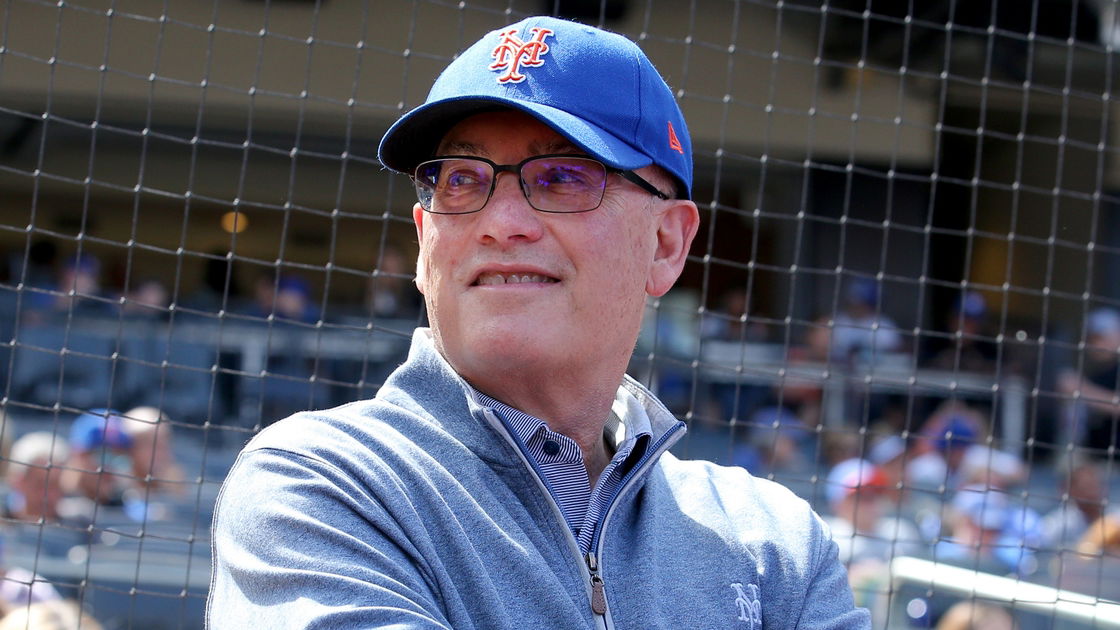

Steve Cohen has never shied away from writing massive checks to establish a contender; however, baseball’s wealthiest manager is beginning to notice the Dodgers are playing a distinctive game. LA has landed generational talent, yet the team somehow keeps their payroll manageable. The secret? Deferrals, sure; however, there is more to it than that.
Watch What’s Trending Now!
Cohen pointed out an overlooked detail, highlighting that the Dodgers do not just defer salaries; they also provide massive signing bonuses upfront. Such an approach enables them to attract superstars while managing financial flexibility. With the Mets rethinking their spending behavior, Cohen’s analysis could hint at a transformation in approach for Queens.
ADVERTISEMENT
Dodgers’ more than just deferrals approach
The Dodgers have become masters of managing aggressive spending with long-period financial control. Shohei Ohtani’s $700 million deal is their largest move yet, shaking up the MLB world. A staggering $680 million of it is deferred, established to be paid between 2034 and 2043. However, as Steve Cohen highlighted, it is not just related to pushing payments in the future. “I think individuals are focused on the deferral and could be not thinking about the fact that they are advancing cash at the beginning,” he said in SNY.
“I think people are focused on the deferral and maybe not thinking about the fact that they’re advancing cash at the beginning”
Steve Cohen was asked about the Dodgers deferring money in their deals with free agents: pic.twitter.com/OrdCdB0BLs
— SNY (@SNYtv) February 18, 2025
Ohtani is not the only instance. The team structured Mookie Betts’ $365 million contract with a $65 million signing bonus, while Freddie Freeman’s $162 million deal contained a $57 million deferred payment approach. The Dodgers have also deployed this approach for Trevor Bauer, whose contract deferred parts of his $102 million deal, and the outcome—a team that lands elite talents while ignoring the steepest luxury tax penalties.
ADVERTISEMENT
For comparison, the Dodgers’ payroll in 2024 sits around $254 million, effectively lower than the Mets’ $325 million. Yet, the team has secured talents like Betts, Freeman, and Ohtani. Their approach enables them to stay competitive while keeping future flexibility intact. This is something Steve Cohen is beginning to identify as a vital resource to sustainable success.
Top Stories
Blue Jays’ Kyle Tucker–Bo Bichette Push Turns Toronto’s Mockery Into AL East Nightmare as Yankees Face New Threat

Blue Jays to Show Exit Door to 3 Playoff Stars as Ross Atkins Plans Major Changes: MLB Winter Meeting Rumors

Francisco Lindor’s Future in Limbo as Mets Owner Breaks Silence After Pete Alonso Exit

Wild Francisco Lindor Trade Idea Surfaces After Former Mets GM Hints $341M Star Wants to Leave

Vladimir Guerrero Jr Shoots His Shot at Kyle Tucker as Blue Jays Manager Gets Real on Clubhouse Visit

ADVERTISEMENT
How Steve Cohen’s approach differs
While the Dodgers have a way of managing big contracts smartly, Steve Cohen‘s team has mostly taken a more straightforward, yet costly, route. The Mets $325 million payroll in 2024 was the highest. In addition, unlike the Dodgers, the Mets are not utilizing deferrals to ease the burden; talents like Francisco Lindor, with a 10-year and $341 million deal, needed massive up-front payments, affecting payroll quickly. Former Mets pitcher Max Scherzer’s 3-year, $130 million contract added to the financial strain, fueling hefty tax penalties.

ADVERTISEMENT
Such a spending spree has triggered luxury tax prices. The Mets are assumed to pay over $79 million in penalties for extending the $297 million “Cohen Tax” threshold. Steve Cohen, despite his financial stability, has admitted this is not a sustainable approach. “I love deferring money if I can, okay? It just so happens my players, I am not getting lucky enough to,” he said. The issue? Multiple free agents prefer large, quick payouts instead of spreading money over decades.
The concern now is whether Steve Cohen can transform the Mets’ financial approach to resemble the Dodgers’. If Cohen can mix deferrals with upfront bonuses, the Mets could finally escape its cycle of spending large without long-period stability. However, for now, the Mets remain stuck paying premium costs without the long-period flexibility their West Coast rivals enjoy.
ADVERTISEMENT
Cohen’s realization related to the Dodgers’ contract approach could seem minor; however, it could mark a turning point for the team. If New York needs to spend large without crushing tax penalties, adopting a mix of deferrals and signing bonuses could be the next step. After all, Cohen did not become a billionaire by ignoring smarter financial approaches. If he plays his cards right, the Mets could spend and save at the same time, though knowing Cohen, he would probably rather write a check today than wait until 2045.
ADVERTISEMENT
ADVERTISEMENT
ADVERTISEMENT

